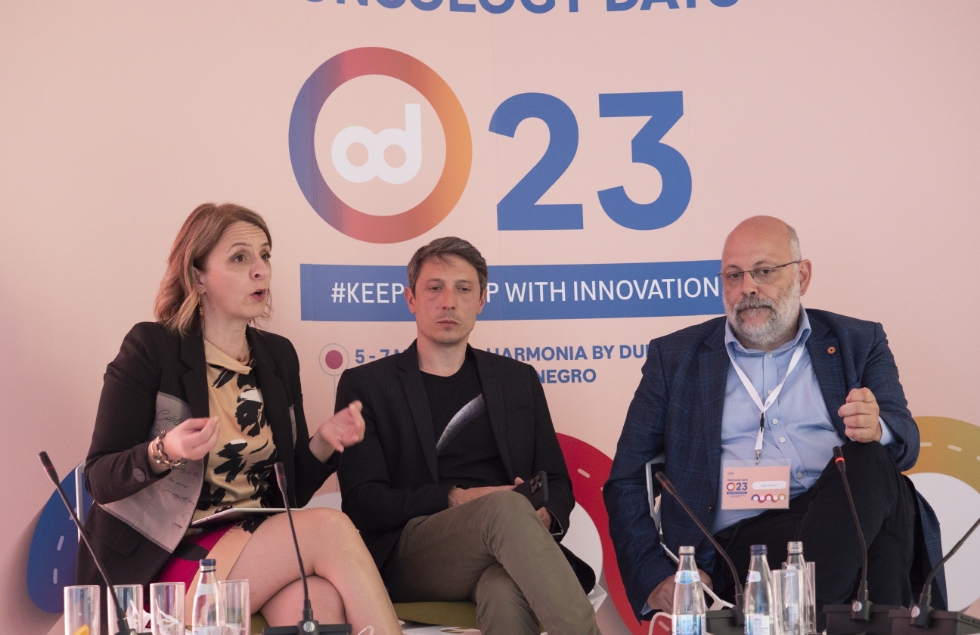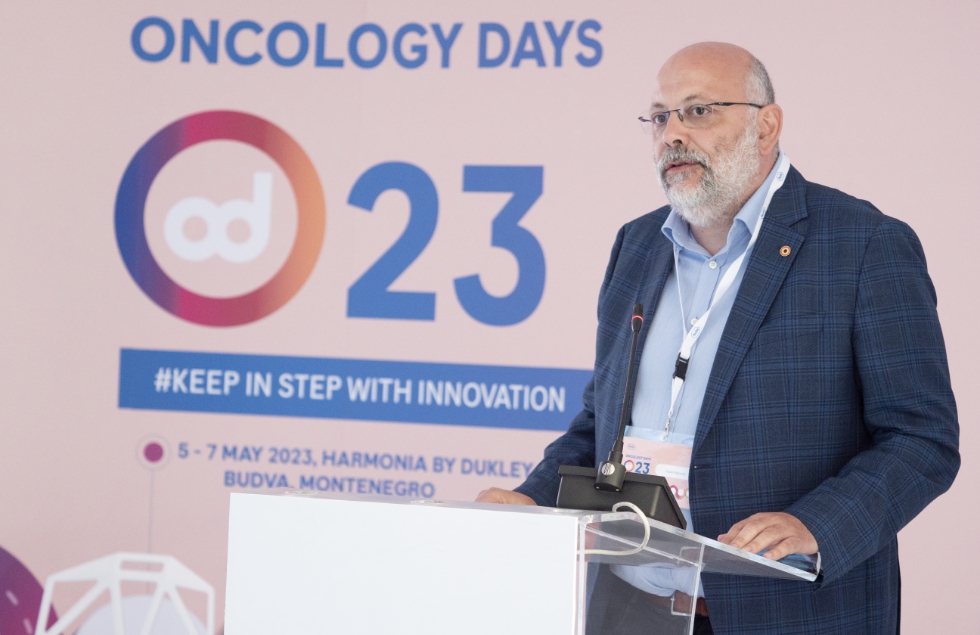The company “Hoffmann-La Roche ltd. Crna Gora” organized a national oncology conference called “Oncology days – keeping pace with innovations” from May 5 to 7 in Budva
Numerous local and foreign experts participated in panel discussions and delivered lectures at this gathering, at which an important goal was achieved – connecting and exchanging experience at the professional level.
The conferenced has addressed the importance of digitization and data in healthcare, and one of its key aspects was personalized medicine, which will enable a personalized approach to prevention and early detection of diseases, precise diagnostics and individual therapy, adapted to each patient individually.
During the session “Leveraging Data and Insights to Enhance Cancer Care Throughout the Patient Journey”, the “Heliant” company representative, Vukašin Radulović, spoke about the importance of data in healthcare, how to make the most of it, and how healthcare systems could learn and be more efficient with the help of deep data processing.
Mr. Radulović also spoke about the necessity of transforming our healthcare systems into “learning systems” in order to adequately meet the needs of patients and the general population. He emphasized that linking the data of the entire healthcare system was necessary for providing adequate input information, monitoring patients and improving results.
Using this approach, the healthcare system would learn and continuously develop, in order to improve the understanding of the patient as an individual, the disease and their own needs, Vukašin Radulović pointed out.
During the panel discussion, good examples of the use of digital technology in different segments from the region were listed. Virtual examinations that came to life in Serbia, such as eConsultations, and/or eKonzilijum were also presented.

At the end of this session, a Crowd-sourcing workshop was held, where Radulović was one of the moderators, in order to get information from physicians about how they used digital technologies and what they needed to improve the use of digital technologies.
The first day of the conference was dedicated to inequalities in cancer treatment, a topic that was hugely addressed in oncology at this moment. PhD Mark Lawler presented the “European Cancer Pulse” project, which aimed at eliminating inequalities in the provision of oncology healthcare among European countries, but also within different regions of a country.
Professor Lawler emphasized that in order to define adequate and effective healthcare policies, aiming at standardizing and improving patients’ healthcare, essential data would be required to determine the focus for partnerships and investments against the needs of each country.
The treatment of early cancer and efforts to make cancer curable in the 21st century was also discussed at the conference. As many panellists emphasized, one of the two key ways to achieve this goal would be to improve access to timely prevention, early detection, screening, diagnostics and innovative therapies.
Using data and technologies, such as artificial intelligence, can also significantly help us reduce inequalities in access to high-quality interventions across the region.
